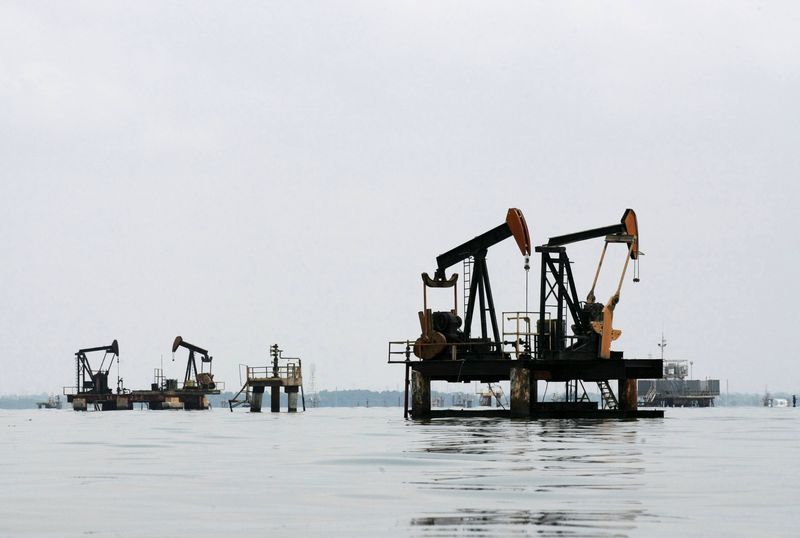* U.N. seen confirming Iran compliance with nuclear deal
* Barclays (L:BARC) lifts Iran oil production forecast (New throughout, updates to U.S. session, adds comments, changes byline, dateline; previous LONDON)
By Barani Krishnan
NEW YORK, Jan 14 (Reuters) - Oil prices rebounded on Thursday, snapping an eight-day rout, as some players covered short positions after crude prices plumbed new 12-year lows amid concerns over Iran adding to a global glut faster than expected.
Brent, the global crude benchmark, earlier broke below $30 a barrel for a second day in a row before rebounding, as a U.N. nuclear watchdog appeared likely to confirm by Friday that Iran has curtailed its nuclear program as agreed with world powers, paving the way for sanctions to be lifted against its oil. options for U.S. crude's front-month contract expiring at Thursday's settlement, many players were covering positions, said traders.
"Natural covering interest is buoying the market as many had $30 as an objective," said Pete Donovan, broker at Liquidity Energy in New York. "With today being Feb WTI options expiration, I can't help but notice that the $30 put has easily the largest open interest of any of the nearby strikes."
Brent crude LCOc1 was up 45 cents, or 1.5 percent, at $30.76 a barrel by 11:28 a.m. EST (1628 GMT), hitting an intraday high of $31.10. It fell earlier to $29.73, the weakest since February 2004.
Brent had lost about $7 a barrel, almost 20 percent of its value, over the past eight sessions.
U.S. crude's West Texas Intermediate (WTI) CLc1 was up 55 cents at $31.03 a barrel, after a session high of $31.77. It hit a 12-year low of $29.93 earlier in the week.
Barclays said it had raised its estimates of Iranian oil supply on Western sanctions being lifted sooner than expected. Analysts at the U.K.-based bank said they now assume Iran will produce almost 700,000 barrels a day more in the fourth quarter of 2016 than over the same period in 2015.
Iran had said its exports would rise by 1 million barrels a day within six months of sanctions being lifted.
On the positive side, oil and gas projects worth $380 billion have now been postponed or cancelled since 2014 as companies slash costs to survive the oil price crash, including $170 billion of projects planned between 2016 and 2020, according to a report from energy consultancy Wood Mackenzie.
